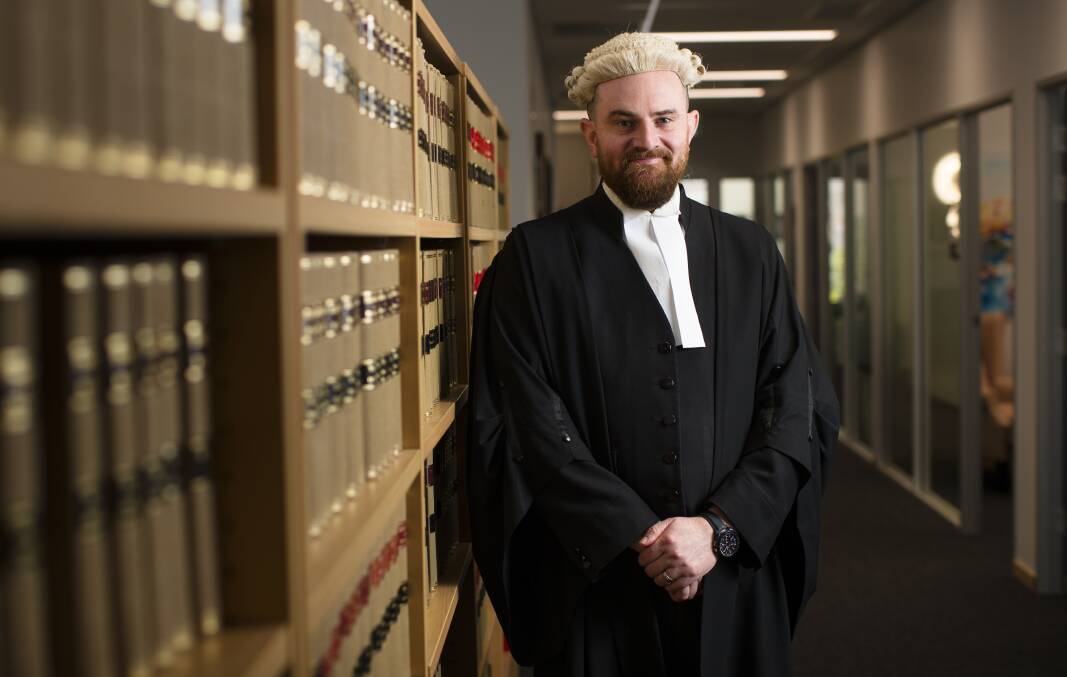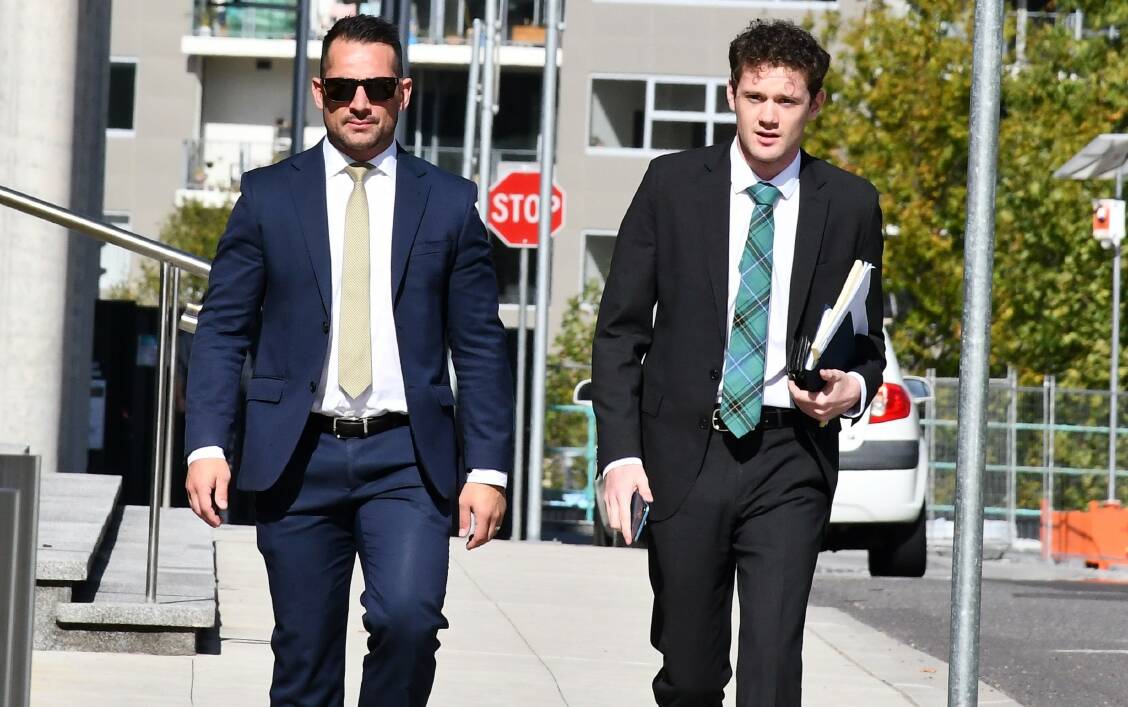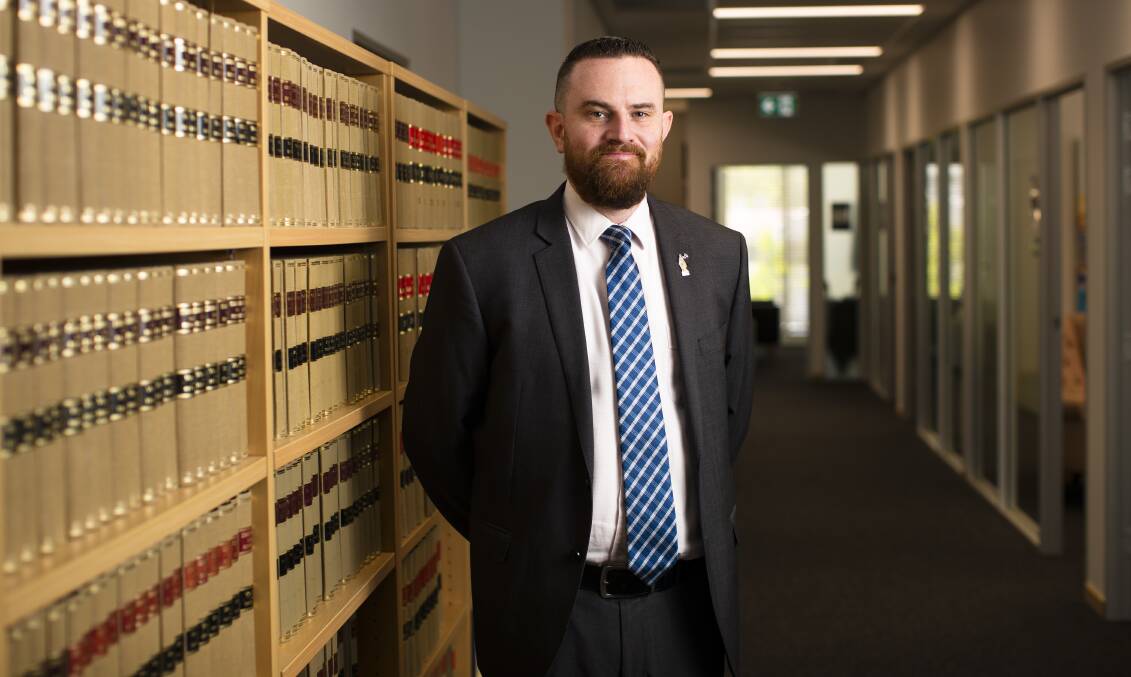The ACT's acting top prosecutor has responded to criticism of his office's approach to sexual assault cases, saying it is "wrong as a matter of logic and common sense" to suggest everyone who is acquitted should never have stood trial.
Anthony Williamson SC has sought to explain the office's decision-making processes, which have been described as "opaque", in the wake of what he called "considerable media commentary".
Writing in this month's edition of the ACT Bar Bulletin, Mr Williamson does not discuss decision-making in relation to specific cases, including the abandoned rape prosecution of former Liberal staffer Bruce Lehrmann.
However, that case gave rise to stories that have featured another former political staffer, Alexander Matters, revealing he is weighing up suing the ACT government after being cleared of rape charges.

Mr Matters, who lost his job with Labor politician David Smith after being charged, recently told Sky News there was "always a yearning for answers" about prosecutorial processes.
"All the cases that aren't staffers facing trials, you want to know what decisions are being made in terms of the charges they face and how many times are prosecutors just putting charges through to the jury when it shouldn't actually be up to the jury at that stage," Mr Matters said.
Mr Williamson, the acting ACT Director of Public Prosecutions, explains in his article that his office's decision-making centres on whether a case has "reasonable prospects" of conviction.
He writes that it is important to understand that each case is judged on its merits, the available evidence and its unique circumstances.

"Contrary to some public misconception, the [office of the Director of Public Prosecutions] does not apply any universal rules or presumptions," Mr Williamson writes.
"It is not the policy of the ODPP that all sexual offence allegations must automatically progress to a trial.
"Conversely, it is not the case that any inconsistency or curiosity in a complainant's version of events will necessarily mean that the matter will not progress."
Mr Williamson also notes prosecutorial discretion is informed by "evolving community standards and expectations".

He identifies three routinely arising issues prosecutors keep in mind when exercising their discretion.
These include the idea that "oath-on-oath" sexual assault cases are inherently weak.
Mr Williamson notes Chief Justice Lucy McCallum addressed "myths and stereotypes" along these lines in a recent ACT Court of Appeal judgement.
"The sworn account of a person who claims personally to have experienced a sexual assault is capable, without more, of proving the assault beyond reasonable doubt," the territory's top judge wrote.

The second issue Mr Williamson identifies is "antiquated stereotypes" about a complainant's behaviour after alleged sexual offending.
He cites the NSW Court of Criminal Appeal, which has repeatedly described inviting judges to make assumptions about how sexual assault victims might behave as "unhelpful".
"The criminal law has moved on from a time when sexual assault trials were overlaid with antiquated stereotypes about how a victim is supposed to behave," the court has also said.
The other matter Mr Williamson raises is the recent abolition of a defence that entitled an alleged sex offender to an acquittal if they honestly and genuinely believed a complainant was consenting.
That defence was abolished as a result of the ACT introducing a new "communicative consent" model for cases that involve sexual offences allegedly committed after May 12, 2022.
Those laws did not apply in relation to Mr Lehrmann or Mr Matters, both of whom maintain their innocence.
Mr Williamson concludes by writing that his office is consistently seeking to improve its decision-making, with unsuccessful prosecutions reviewed.
"Where shortcomings or failings are identified, they will be acted upon," he writes.
"But it is wrong as a matter of logic and common sense to suggest, with the benefit of hindsight, that simply because an accused person has been acquitted the prosecution was wrong to put the case before the court in the first place."
Notably, a recent inquiry into the handling of Mr Lehrmann's criminal case found prosecutors were right to bring the ultimately abandoned case against him.







